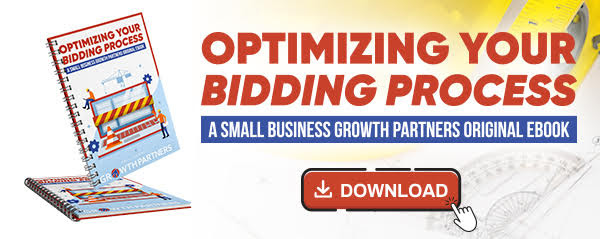Succession planning can be a huge deal for any family-run or owned business, including construction firms. The process is something that should be handled with patience and care. Poor succession planning can ruin a company and have a negative impact on personal matters. However, thoughtful succession planning will allow the company to continue to grow and thrive.
–
Don’t leave the succession to the Estate Planner. Generally speaking, this usually only works out well if you plan to sell off your company and give the proceeds to your beneficiaries. Even in such a situation, it might be best for you to handle or set up the sale while you’re still actively working, utilizing your industry insights to get the best deal.
Also, don’t wait until it’s quite literally too late. Instead, plan early, plan thoroughly, and use the succession process to strengthen your company and position.
Here, we’ll go over several benefits of succession planning.
–
Address the Elephant in the Room
Death is a traumatizing and disruptive experience for the family and friends left behind. Grieving family members are already dealing with a wave of emotional challenges, and figuring out who will take over/sell the company can further complicate the matter. Succession planning will drastically help reduce the associated burdens allowing the family to focus on emotional healing.
Death is just one example where succession planning would come into play. While it may be a sensitive topic, determining the factors of succession early on can help lay the foundation for the future of your construction business.
–
Make Moves to Ensure Longevity for Your Business
Businesses thrive on stability—unstable environments can overwhelm even the most sound companies. Succession planning can go a long way towards helping companies avoid turbulence in the long run and ensure that work and business can go on.
First, plan out the company’s management structure. Identify potential candidates that you can groom into a leader. See if their goals and experience will align with your vision for your company. Construction companies are known to be evaluated based on the perception of trust, execution, and their name—which is why you must take the proper measures to protect its/your legacy.
–
Use Tests to Identify a Successor
With an appropriate succession plan, you’ll be able to transfer much of this knowledge and wisdom. You’ll also enable people to gain vital experience while under your watchful eye.
A succession plan doesn’t boil down to “just” picking a successor. Try giving several people increased responsibility and less oversight and then see how they perform. Or you could go the opposite direction, working more closely with potential successors to learn how their mind works and how they manage their staff. What’s important is finding the “right” person.
Building up a structure that will support the business’s future leaders is another vital consideration. This might mean identifying stellar middle managers, crew leaders, and all the rest.
–
Weigh Your Options
A significant part of the succession planning process is simply identifying your options. This, in turn, allows you to consider what’s best for your company. Sometimes, the most “obvious” succession plan, such as handing your business off to your oldest son or daughter isn’t the best option for the company.
Other times, it’s best to hand the company off to someone who’s not even in the family. Your options will be apparent once you have tried to put them into elevated roles. Monitor their success and keep track of who you think is doing a stellar job while also analyzing pitfalls. Depending on the situation, you may see that a family member will put forth more effort to prove that they deserve the position. Either way, having a record of their abilities will prove to be the most efficient way to determine who can handle taking over.
–
Make Sure the Heart of the Business is Happy
When you think succession planning, you probably think about the CEO and company board. That makes a lot of sense in some businesses, and indeed all of those elements should be carefully weighed. However, the construction industry operates on a different scale, where the employees are the heart of the company. After all, if the staff isn’t happy, it shows in the work and will compromise the integrity of your brand.
Many staff members will have grown used to your leadership. A changing of the guards could prove challenging for them, especially if it’s poorly planned or unexpected. Additionally, if they feel as if the successor was “pulled out of a hat” then they could perceive that as shotty judgment and lose respect for the new leader.
–
Solidify the Business Processes
As you know, every business has a unique way they do business. Developing a standardized process can make handing over the reigns much easier because they will know what to expect from the job.
A few things that should be worked out include:
- Ensuring legal agreements are in place
- The financing is secure and documented
- Employees are informed about the transition
- The expected workflow has been laid out in an easy to understand format
- Equipment is accounted for and maintained
It also makes sense to reach out to clients and customers and to explain to them the changes that will be coming as well.
–
Succession Planning is the Right Move for Every Business—Small and Large
No one wants to think about death, either for themselves or their loved ones. However, succession planning is necessary for any business. Every time leadership and ownership could potentially change, it’s essential to outline what that change will look like. Doing so will ensure stability and success.
–






